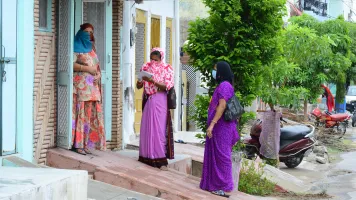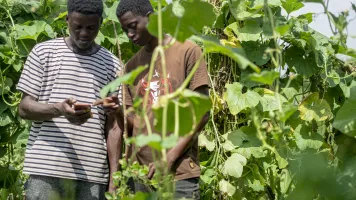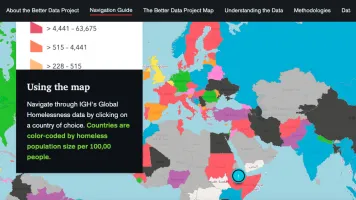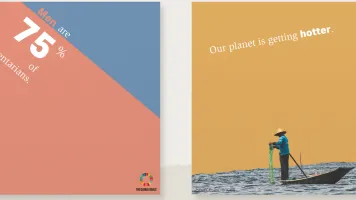The Global Partnership blog features commentary from in-house experts, and partners, with thought leadership on pressing issues in data for development. You will also find links to the latest Data Values Digest articles with thought-provoking posts from across the Data Values community on unlocking the value of data for all.
Featured
The latest from the Data Values Community
Sustainable development data needs good statistics officials–but how strong are their data skills?
José Antonio Mejía Guerra, Christian Schuster, Magdalena Rojas, Jan Meyer-Sahling, and Kim Mikkelsen share insights from their survey of 13,300 statistics officials in 14 countries in Latin America and the Caribbean on the skillsets of statistics officials.
Building trust through data in rural Nigeria
Digest #85 | Without data that helps governments understand the reality of disabled people’s lives, policies can leave critical needs unaddressed. Inclusive data can break this cycle, writes Zuliehat Ohunene Abdullahi.
Building AI with - not for - communities
Digest #84 | AI is one of the most promising technologies in decades for those working in international development, but new technologies cannot succeed in isolation, writes Ronda Železný-Green, PhD.
All blog posts
Filter by:
12 of 98 items

Five ways data is bolstering African countries' resilience to the pandemic and other global shocks

The questions we all should be asking on intersectionality and data

How climate-smart agricultural services can improve lives

Power to the people: citizen-generated data will unlock solutions to antimicrobial resistance

Homeless people are overlooked and undercounted—change is overdue

Five ways to end the invisibility of marginalized people in data

Global Goals Day of Factivism puts a spotlight on timely data

As Global Partnership For Sustainable Development Data turns 5, the world needs actionable data more than ever

How can factivism help achieve the Sustainable Development Goals?

Data, Data Everywhere: New World Bank Water Data Portal

Street-connected children and COVID-19: When invisibility in data means going hungry



